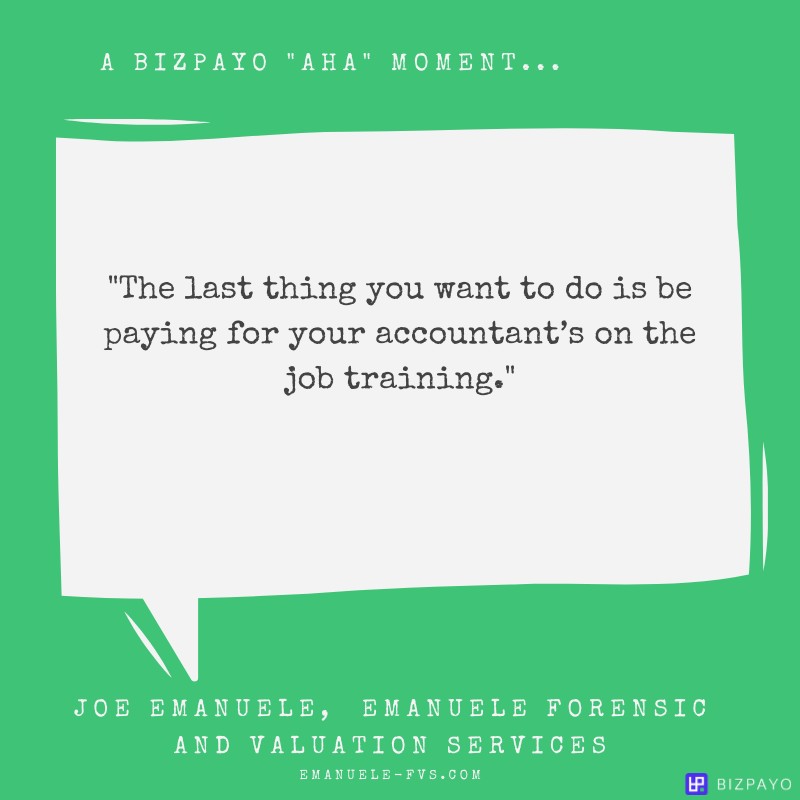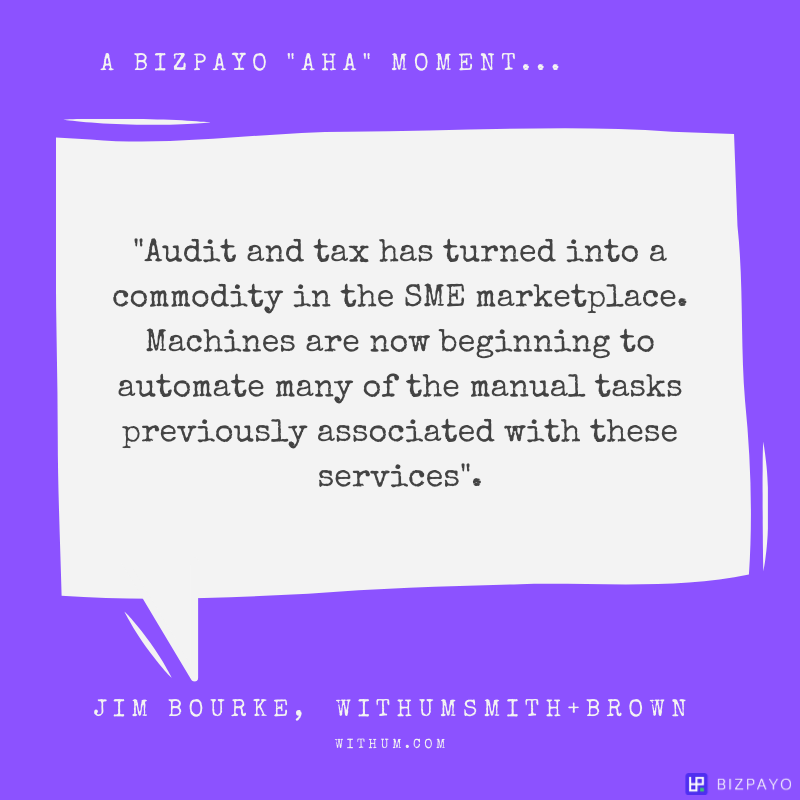The 10 Most Important Questions to Ask Before Hiring an Accountant, According to the Experts
What is the MOST important question a business should ask before hiring an accounting firm?
Choosing an accountant is not easy. In this latest expert round-up article we asked some of the most successful accountants to weigh-in on the single most important question to ask before hiring an accountant.
The following are the top questions to ask any accounting firm or CPA to make sure that they are the best fit for your personality, niche, industry, budget and getting paid on time.
Let’s get to it. Here are the most important questions to add to your due-diligence check-list when hiring an accountant:
1. What is your experience with my particular industry/practice area?
“Just like doctors, CPA firms should be specialized in your industry so that they can provide not only technical skills but also provide added value in terms of advice and best practice experience. Medical practices need specialized billers. Home health care companies need accountants that understand Medicare payments. Manufacturers need accounts that follow specific inventory software and job costing. Law firms have different practice management software,” says Brian George of CALAS Group LLC.
“Clients waste much time and money hiring and firing well-meaning CPA/accounting firms because they are not experts in their industry.”
“Many accounting firms want to expand their practice into new areas. The problem is that often they are so new to the practice area that they don’t have experienced staff. The last thing you want to do is be paying for your accountant’s on the job training,” says Joe Emanuele of Emanuele Forensic and Valuation Services.”
“Ask for some names so you can speak with them.”
“Making a connection with the business owner and having the accounting company have experience in your industry is key. For example if you work primarily with Gas and Oil or Manufacturing but then also with a health practitioner that owns several locations or a franchise owner with multiple locations, they will all have a very different business model, technology, tax law and accounting needs.” says Jessica Green of Green Tax and Business Advisors, LLC.
“It's imperative that your accountant firm know the intricacies of your industry so that they can help you with your business needs.”
“It is important because some industries provide certain tax credits to businesses that can be extremely beneficial, or rules/laws specific to that niche. If an accountant is not familiar, it can be quite costly to the client,” says Ariel Joudai, CPA.
“A company will benefit most by hiring an accounting firm that is familiar with their type of business or industry. They won't have to train the accountants to understand what the company does and how they make money,” says James Sausmer, CPA.
“The firm should be familiar with this and provide insight from experience to assist the company and promote efficiency in their operations. This way you get more than just bean counting.”
“This question is so important because every tax and accounting situation is very unique, and usually requires past experience and/or knowledge of the specific situation to successfully navigate it,” says Josh Seward of Gerstein Tax Service.
“While it is possible to succeed at an accounting or tax related situation without having experience of it, all the reading and research can't replicate previously doing something and having that first hand knowledge.”
“A positive demonstration of relevant and meaningful experience reduces the learning curve in uploading a new client resulting in less startup time and consequently lower initial costs to bring a new client onboard,” says Larry Riddlebarger of Accurate Books and Tax.
“The accounting firm's web site should indicate client/accounting firm fit. In addition the initial interview should include more fact-finding which should include gauging the firm's level of integrity and compatibility with a client's ownership, management, and staff.”
RELATED: The 30 Best Accounting Tools According to 35 Top Accountants

2. What is your niche or specialty?
“Would you go to your brain surgeon for heart surgery?,” says Roger McCloud of IRON Tax, Accounting & Financial Solutions.
“This is important because you want an accounting firm and/or tax professional to be an expert in your industry. All accounting firms can provide basic knowledge of accounting and taxes but when it comes down to maximizing all the opportunities available to you, you need an expert in that field,” says Amber Whitehead of Whitehead Tax and Financial Services LLC.
"For example mostly everyone has a Primary Care Physician and they know the basics of trying to keep you healthy but if you need specialized service they will refer you to that specialist. The same concept applies. Why would you go to an accounting firm that doesn't specialize in real estate and you are a broker, investor, etc? Yes that firm will be able to give you basic knowledge but to really dig deep and get you those deductions only the firm or tax professional who serves that industry will be able to better assist you.”
3. Does this CPA understand your business mission/vision and will he/she help achieve your financial objectives?
“When you decide to hire a CPA, avoid going with someone just based on word of mouth. Every person/business’s situation is unique, a CPA could be a good fit for your friend, but not necessarily for you. When it comes to finding a good CPA, you need to do your own due diligence,” says Shanli Liu of Creliable.
“A CPA with years of experience does not mean that he is best suited to do your tax. Again, the emphasis should be on the CPA’s expertise and whether it is a good match with your business/personal needs. What’s also important to consider is the CPA’s communication style. Most CPAs will be difficult to reach as they are swamped with tax returns, your interactions with them will be limited. Like lawyers, CPA charge by the hour, most clients do not hear from the CPA until after the returns are done."
"A couple months before tax season starts, all clients will receive questionnaires to send in their tax information. If you are a type of business owner who is hands on and needs reassurance that everything is progressing smoothly, you will grow impatient.”
“In conclusion, no one cares more about your money more than you, CPAs also make mistakes and it is up to you to double check their work. Your CPA does not change what has already happened, filing your tax with a CPA probably would not save you much money versus Turbo Tax. You need to evaluate your own situation and assess your need for an accountant.”
"A good fit between the accounting firm and the client will provide the greatest accounting benefits for the client," says Michele K Sheerahamed CPA of Michele Koscielniak CPA LLC.
"Does the company want a larger firm with many partners or a smaller sole practitioner? Is a "one on one" type of relationship with the CPA important? If the company is in a specialized industry, which CPA firm is best equipped to handle this? Is the work repetitive general work? Firms work at different rates. Pick a firm with an affordable rate for the company."
"Trying to do some work in-house because the accounting service is barely affordable does not allow the CPA firm to do their best work and usually harms the company. Meet with the person that you will be working with. If you do not feel comfortable with them, neither the firm nor the company will be able to maximize benefits."
4. What kept me up last night thinking I need an accounting firm to solve?
“I believe that this question is so important because I feel it's most often the problem that someone is looking to me to help solve. I feel that knowing this answer gives me the ability to assess whether or not that I can provide value to them,” says John Nardi of John Nardi, CPA, PLLC.
“If I feel that I can I challenge myself to prove the same to them and if I feel that I can't I'll put the same effort into pointing them in the right direction.”

5. Do you identify yourself as more of an accountant than an entrepreneur?
“In today's challenging world of business, it is important to work with an Entrepreneurial Accountant,” says Salim Omar of Straight Talk CPAs.
“Someone who's knowledgeable with the latest tax and accounting rules and strategies and understands and speaks the language of "business". If that person does not, there will be a disconnect and lack of communication with the business owner.”
6. What else can you do for me besides my audit and tax work?
“Audit and tax has turned into a commodity in the SME marketplace. Machines and now beginning to automate many of the manual tasks previously associated with these services,” says Jim Bourke of WithumSmith+Brown.
“Accounts need to put themselves into the roles of the “Trusted Professional” and should be asking their clients what else are you buying from other providers that you would buy from me if I were to offer it?”
7. How can you, as my accountant, assist my business with achieving the growth we desire?
“This question allows the accountant, if savvy enough, to bring all their experience to the table, leads to their understanding of the industry that the client is in, their experience with appropriate accounting system platforms, and the tax matters that may be industry-specific to that client,” says Damien Scott of Lexington CPA & Associates.
“I feel this question gives me the opportunity to give the fullest picture of what my firm and I can do to assist our clients. When asked this question I have an immediate smile on my face because I know the client is astute.”
“My response varies somewhat depending on the client and industry they are in but I make sure to touch on the main points of, accounting system (is it appropriate, is it set up correctly, are the right people doing the right job, etc), tax planning and preparation (is there a tax plan in place, are the taxes reflective of how the business truly performed, etc) and bookkeeping (are the books accurate, are they easy to understand, do they provide insight, are you backwards reporting or forward thinking, etc).
"I try to complete this with examples that are industry specific to the client we are speaking to.”
8. Can I sleep comfortably at night knowing this firm is handling my businesses taxes and accounting?
“This question is important because you want to be working with an accounting firm that has your best interest in mind. You want to make sure they are all competent, educated, and motivated individuals who stay up to date on new tax laws and don’t simply rest on their laurels, says Danny Roseth of H.D. Roseth & Associates.
“But more importantly, you want to work with a firm that can break down complex tax issues and create an open dialogue. Any accountant can crunch the numbers, but when you go the extra mile and have good communication with your clients, that’s where tax strategies and efficient planning can unearth itself.”
“And at the end of the day, if you understand your tax situation, feel your accountant is taking care of everything as efficiently as possible, while keeping you out of any trouble, then life is good."
RELATED: How Important Are Customer Reviews for Accountants?

9. How can you help me to look forward rather than backward at historical information?
“A great accountant can help you look at your succession plan (where do you want to end up when you are ready to retire) and how can we use retirement, estate and wealth planning to get you there. How can we improve the business to be our tool to get where we want to be?”, says Cathleen Volk, CPA.
10. How long does your firm take to respond to client emails and phone calls?
“It is important because it shows how efficiently the firm manages clients' requests and needs and also how the firm handles its own capacity and workflow,” says Anil Melwani, CPA of 212 Tax & Accounting Services.
“I answer it by saying that we usually respond within 24 (business) hours, but definitely within 48 hours at most during very busy times of the year. No client should ever have to wait more than that for a response.”




